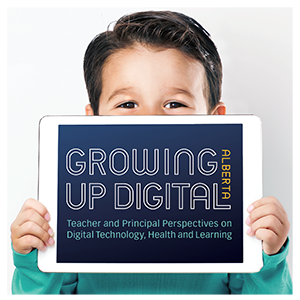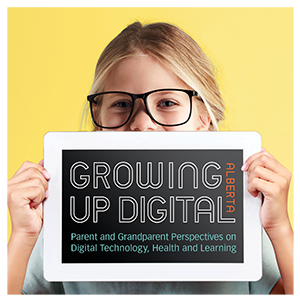Page Content
Project Overview
The ATA has partnered with Harvard Medical School and School of Public Health, and the University of Alberta (U of A) on a provincial technology, learning and health research project, “The GUD Project—Growing Up Digital (GUD) in Alberta.” The project has the potential to be the world’s largest study of technology, learning and health impacts on K–12 students. This research study will reframe issues surrounding children’s consumption of media, moving into an evidence-based examination of media’s social, learning and health impacts within the population of Alberta K–12 students.
Key Activities
 |
Teacher and Principal Perspectives on Digital Technology, Health and Learning
In 2015, a survey was conducted to gather teachers’ and principals’ perspectives related to digital technologies, particularly as they affect teaching and learning. More than 2,200 teachers and principals completed the survey, drawing thousands of qualitative responses that show that teachers are beginning to see connections between the areas of health, technology and learning.
|
 |
Parent and Grandparent Perspectives on Digital Technology, Health and Learning
In 2017, a survey was conducted to gather the perspectives of parents, grandparents and guardians. As with the first survey, this instrument was designed to investigate perceptions of the scope of the physical, mental and social consequences of digital technologies on children and youth. With 3,702 respondents, the survey also gathered data on how parents, grandparents and guardians perceive the effects of digital technologies on their children’s reading, speaking, math, social skills, behaviour, emotional health and levels of anxiety.
Updates on activities to be undertaken in 2018 in relation to the project are forthcoming.
|
Implications
The GUD Project is unique to the field and valuable to all who work with children as it examines media exposures, as well as a variety of physical and mental health outcomes, from obesity to violence to school performance. Moreover, the project does not aim to determine which media products are good or bad. Instead, it focuses on knowledge creation through a needs assessment and resulting considerations for regulation and policy for teachers, parents, students and school authorities.
